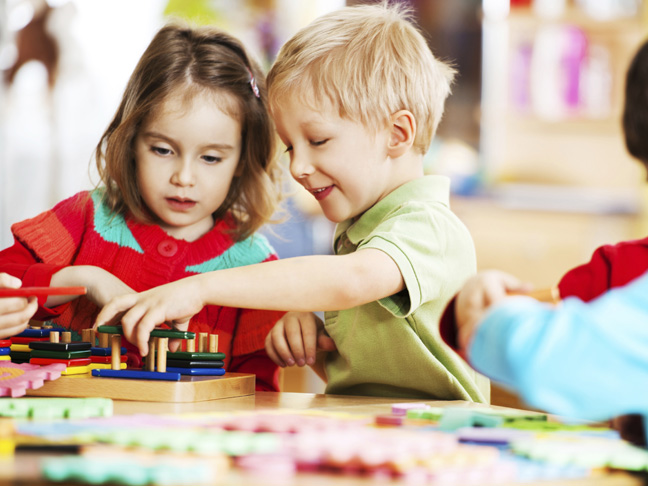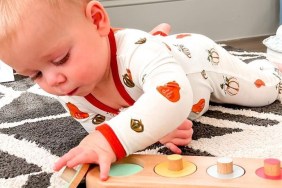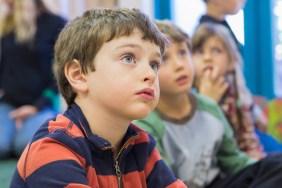Sadly, scenes like the one in this particular kindergarten classroom are not an everyday occurrence in public schools today. With the Common Core State Standards in place and the pushing down of academics in full swing, many kindergarten students spend their days memorizing sight words and math facts while working their way through worksheets.
Despite plenty of research documenting the importance of play in early childhood development, public schools in America continue to move away from play-based learning as they push for early achievement. The problem, of course, is that the push for early achievement by way of literacy and math drilling ignores the fact that young children learn the most when they are engaged in play. In short, they need to get their hands dirty and work though concepts without being glued to their seats.
A recent report from Defending the Early Years (DEY), in conjunction with the Alliance for Childhood, calls for the withdrawal of the kindergarten standards from the Common Core Standards so that they can be rethought along developmental lines. The report argues that the implementation of the reading standard, in particular, is leading many teachers to resort to drilling on specific skills and excessive testing.
Nancy Carlsson-Paige, Ed.D, senior adviser of the DEY project and Professor Emerita at Lesley University, in Cambridge, Massachusetts, says that the concept of learning through play is misunderstood. “Play and learning are not dichotomous,” she tells me. “Young children learn and make sense of the world around them in a different way than older children do. They need to manipulate materials, engage with their peers, engage all of their senses, and work through their thoughts and feelings.”
The benefits of play-based learning are many. Through play, children learn to delay gratification (always a hot issue for parents of young children), take turns, negotiate with peers, solve problems, cope with disappointment, listen to others, and empathize. And the benefits don’t stop there. Have you ever watched a group of young children engaged in high-level play? Imaginative play in kindergarten requires planning, higher level thinking, cognitive skills, math skills, and language skills. Ask a group of 5- and 6-year-olds to open a new restaurant and see what happens. If given sufficient time for sustained imaginative play, that group of kids will use anything they can find to set up the restaurant, advertise, and create some form of currency for their customers. If that’s not considered learning, I’m not sure what is.
If play-based learning is the best way to reach our young children, why the push for early academics? “Adults consider play frivolous — a waste of time,” explains Carlsson-Paige. “Adults don’t understand that play is the cornerstone of learning. Play builds the foundation for conceptual learning.”
The truth is the we live in a results-driven world right now, both in and out of the classroom. Parents often consult me with questions about delaying gratification and teaching kids the lost art of patience, but when I ask them about things like iPad time, video games, and structured activities, they brush me off. Kids are plugged in and over scheduled, and that results in low frustration tolerance, lack of patience, and an inability to delay gratification. When games provide rewards in 30-second intervals how on earth can a child possibly wait all day for an ice cream cone?!
While blocking out time for sustained imaginary play might seem frivolous, it’s important to remember that children do learn math, literacy, language, and social skills when engaged in play. Consider this possible scenario: A teacher reads the class a book about a polar bear. After talking about the book, the students break into small groups and build a home for a polar bear. They have to consider the natural habitat of the polar bear, how the bear will get food, how the bear will hide from predators (if there are any), and what the bear needs to survive. Through this hands-on project, students will build a habitat and learn more about the polar bear while working as a group.
Play is the language of children. Play helps children work through their emotions and learn about the world around them. While short-term achievement might seem important, the long-term benefits of a childhood filled with play are far greater than a “4” on a standards-based report card.
As education continues to move in the wrong direction, our youngest learners will suffer for it. “When children have educational experiences that are not geared to their developmental level or in tune with their learning needs and cultures, it can cause them great harm, including feelings of inadequacy, anxiety, and confusion,” says Carlsson-Paige. I think it’s time we listen to the early childhood development experts on this one, don’t you?
Photo: Getty








